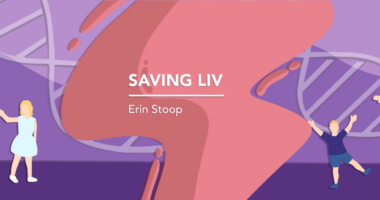Study Emphasizes Needs of Caregivers of Children with Sanfilippo Type B

A multidisciplinary approach tackling not only the behaviors and symptoms of children with Sanfilippo type B, but also the needs and quality of life of their caregivers, is vital to alleviate the physical and emotional burden experienced by these carers, a study says.
The findings of the study, “Analysis of the caregiver burden associated with Sanfilippo syndrome type B: panel recommendations based on qualitative and quantitative data,” were published in the Orphanet Journal of Rare Diseases.
Sanfilippo syndrome type B, also known as mucopolysaccharidosis type IIIB (MPS IIIB), is a rare genetic disorder caused by mutations in the NAGLU gene, which provides instructions to make the alpha-N-acetylglucosaminidase (NAGLU) enzyme.
When genetic mutations reduce the activity of NAGLU, toxic deposits of long complex sugar molecules called heparan sulfate start to accumulate inside cells, causing brain atrophy (shrinkage), gradual cognitive decline and acute hyperactivity.
“Care for patients with Sanfilippo B is provided primarily by parents. … The burden on caregivers has a wide impact on all dimensions of day-to-day family life that extends to the physical and psychological well-being of the caregivers,” the authors wrote.
“Although little research has been published regarding caregiver burden in Sanfilippo B, survey findings of caregivers of Sanfilippo syndrome patients (including those with Sanfilippo B) indicate that they experience a substantial loss of health-related quality of life (QoL) and a high level of anxiety and depression,” they noted.
This study summarized the main recommendations issued by a panel of clinical advisers aimed at minimizing the physical and emotional burden carers of patients with Sanfilippo type B face.
The panel, composed by an international group of experts in the care of children with Sanfilippo type B, gathered for a daylong meeting in London to discuss what types of challenges caregivers faced, how their experiences changed as the children got older, and what could be done to improve their overall quality of life.
To assist panel members with their decisions and final recommendations, BioMarin Pharmaceuticals conducted and provided qualitative and quantitative research data, gathering feedback from parents, caregivers, disease experts, and patient advocates.
According to data from secondary research, the burden caregivers of children with Sanfilippo type B face remains high for the life of the child, and may worsen as the disease progresses. This, coupled with the physical strain posed by daily care, has a strong psychological impact on carers, which in turn has a negative impact on their overall quality of life.
“An early diagnosis can help reduce the initial caregiver burden; however, the rarity of the disease and associated subtle [symptoms shown] mean that patients often encounter multiple physicians before being diagnosed,” they said.
In addition, findings indicated the most important factors contributing to increase caregivers’ burden include sleep disturbances, having to deal with children’s hyperactivity, and communication difficulties.
To tackle these issues, it is important to encourage children to communicate openly with their parents and to provide counseling and mental health support to parents and family members.
Moreover, the panel has agreed that defining a new quality of life questionnaire specifically adapted for Sanfilippo type B is vital to “better align caregiver and clinician assessments of caregiver burden.”
“The questionnaire would allow clinicians to better understand the effects on caregivers in terms of their emotional, physical, mental, and social well-being and the impact that care has on the financial status of the caregiver. Development of a questionnaire presents an opportunity to properly define the aspects of the disease that most affect [quality of life],” the panelists said.
“The panel findings indicate that to alleviate caregiver burden, a wide range of Sanfilippo B-specific interventions and support services should be provided that not only target the behavior and symptoms of the patient but are also sensitive to the changing needs of the caregiver’s burden as the disease progresses and provides support to the caregiver’s mental and physical health needs,” they wrote. “The panel [also] recommends specific guidance on best clinical practice for patients with Sanfilippo B, as well as recognition of the important role treatment has in alleviating caregiver burden.”






